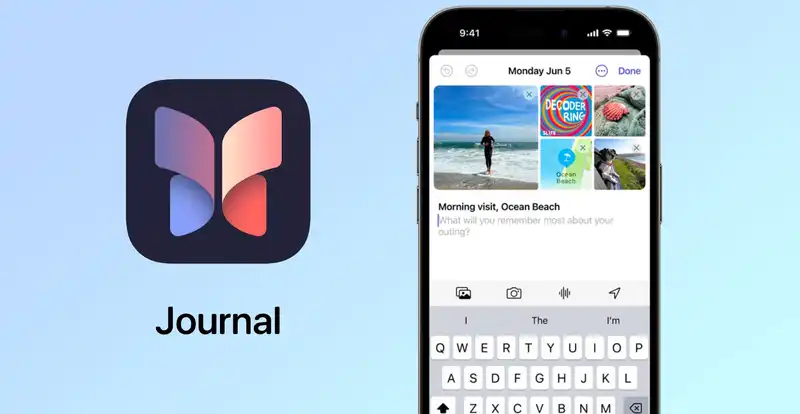Apple's latest iPhone software update, iOS 172, turns on a setting by default called "Discoverable by Others," a name that is alarming to say the least This creepy-sounding setting leads the best iPhone users to believe that their names and locations are being broadcast to the public without their consent The Wall Street Journal reports that while this is not the case, you may want to turn it off anyway
As part of the December rollout of iOS 172, Apple premiered the Journal app, which was demonstrated at WWDC in 2023 This can be considered an advanced version of the Notes app The app features a more dynamic look back at these entries by adding photos, videos, places visited, songs listened to, workouts, etc This is similar to how the iPhone already curates photos and videos in the Photos app to create memories And best of all, through on-device machine learning, the Journal app can automatically provide personalized suggestions on topics to write about, along with daily reflection prompts to focus on gratitude and support mental health
These prompts are called "journaling suggestions" and can be turned on and off And here's where things start to get weird When you open the Journal app for the first time, a prompt pops up asking if you want to enable this feature However, if you go to Settings > Privacy and Security > Journaling Suggestions, you will see that the "discoverable by others" option is enabled by default, even if you have never turned on Journaling Suggestions The description of this setting says: "Allow others to detect your proximity in order to prioritize suggestions
Upon discovering this, many users took to social media to express concern that Apple may be sharing their full name and location with other users without their knowledge or consent A number of posts spread warning users to turn off this feature for safety reasons
When asked about this, an Apple spokesperson told the WSJ that these concerns were unfounded Rather, the "discoverable by others" feature works like this: using Bluetooth, the iPhone can detect how many devices in your vicinity are already registered with your contacts, although the iPhone does not store information about which specific contacts were nearby, If Journaling Suggestions is enabled, this context can be used to improve and prioritize the prompts you receive
For example, if you host a dinner party, your phone will pick up on the fact that this is not your normal night at home and use that information to inform your journaling prompts But it doesn't know who you were with or how long you were there; the Journal app has another setting called "Prefer Suggestions with Other" When enabled, the app prioritizes these types of prompts As for why "Discoverable by Others" is enabled by default, an Apple spokesperson basically said it is to provide the benefits of this feature to early adopters of the Journal app
If you want to prevent your device from being included in Apple's tally of nearby contacts, you can turn it off by going to Settings > Privacy and Security > Journaling Candidates However, with "discoverable by others" turned on, your personal information is safe The "Journaling Suggestions and Privacy" landing page on Apple's legal website tells users who have set up two-factor authentication and passcodes that "all journal entries are encrypted end-to-end when they are stored in iCloud, Even Apple cannot read them," it claims Given the response and confusion, Apple may reconsider the name of this feature If only to give users peace of mind










Comments